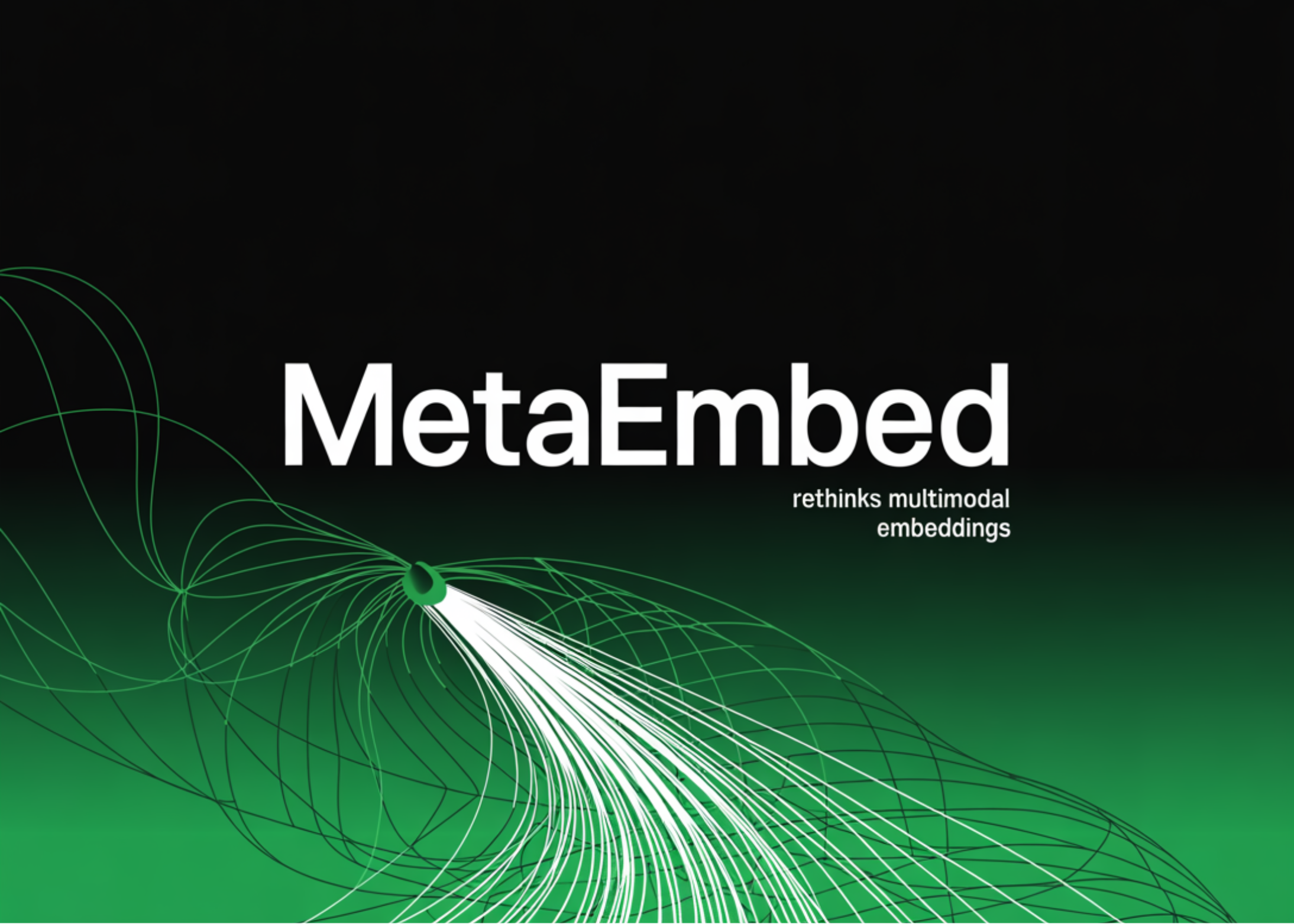What if you could tune multimodal retrieval at serve time—trading accuracy, latency, and index size—simply by choosing how many learnable Meta Tokens (e.g., 1→16 for queries, 1→64 for candidates) to use? Meta Superintelligence Labs introduces MetaEmbed, a late-interaction recipe for multimodal retrieval that exposes a single control surface at serving time: how many compact “Meta Tokens” to use on the query and candidate sides. Rather than collapsing each item into one vector (CLIP-style) or exploding into hundreds of patch/token vectors (ColBERT-style), MetaEmbed appends a fixed, learnable set of Meta Tokens in training and reuses their final hidden states as multi-vector embeddings at inference. The approach enables test-time scaling—operators can trade accuracy for latency and index size by selecting a retrieval budget without retraining.
https://arxiv.org/pdf/2509.18095
How MetaEmbed works?
The system trains with Matryoshka Multi-Vector Retrieval (MMR): Meta Tokens are organized into prefix-nested groups so each prefix is independently discriminative. At inference, the retrieval budget is a tuple ((r_q, r_c)) specifying how many query-side and candidate-side Meta Tokens to use (e.g., ((1,1),(2,4),(4,8),(8,16),(16,64))). Scoring uses a ColBERT-like MaxSim late-interaction over L2-normalized Meta Token embeddings, preserving fine-grained cross-modal detail while keeping the vector set small.
Benchmarks
MetaEmbed is evaluated on MMEB (Massive Multimodal Embedding Benchmark) and ViDoRe v2 (Visual Document Retrieval), both designed to stress retrieval under diverse modalities and more realistic document queries. On MMEB, MetaEmbed with Qwen2.5-VL backbones reports overall scores at the largest budget ((16,64)): 3B = 69.1, 7B = 76.6, 32B = 78.7. Gains are monotonic as the budget increases and widen with model scale. On ViDoRe v2, the method improves average nDCG@5 versus single-vector and a naive fixed-length multi-vector baseline under identical training, with the gap growing at higher budgets.
https://arxiv.org/pdf/2509.18095
Ablations confirm that MMR delivers the test-time scaling property without sacrificing full-budget quality. When MMR is disabled (NoMMR), performance at low budgets collapses; with MMR enabled, MetaEmbed tracks or exceeds single-vector baselines across budgets and model sizes.
Efficiency and memory
With 100k candidates per query and a scoring batch size of 1,000, the research reports scoring cost and index memory on an A100. As the budget grows from ((1,1)) to ((16,64)), scoring FLOPs increase from 0.71 GFLOPs → 733.89 GFLOPs, scoring latency from 1.67 ms → 6.25 ms, and bfloat16 index memory from 0.68 GiB → 42.72 GiB. Crucially, query encoding dominates end-to-end latency: encoding an image query with 1,024 tokens is 42.72 TFLOPs and 788 ms, several orders larger than scoring for small candidate sets. Operators should therefore focus on encoder throughput and manage index growth by choosing balanced budgets or offloading indexes to CPU when necessary.
How it compares?
- Single-vector (CLIP-style): minimal index and fast dot-product scoring but limited instruction sensitivity and compositional detail; MetaEmbed improves precision by using a small, contextual multi-vector set while preserving independent encoding.
- Naive multi-vector (ColBERT-style) on multimodal↔multimodal: rich token-level detail but prohibitive index size and compute when both sides include images; MetaEmbed’s few Meta Tokens reduce vectors by orders of magnitude and allow budgeted MaxSim.
Takeaways
- One model, many budgets. Train once; choose ((r_q, r_c)) at serve time for recall vs. cost. Low budgets are suitable for initial retrieval; high budgets can be reserved for re-ranking stages.
- Encoder is the bottleneck. Optimize image tokenization and VLM throughput; scoring remains lightweight for typical candidate set sizes.
- Memory scales linearly with budget. Plan index placement and sharding (GPU vs. CPU) around the chosen ((r_q, r_c)).
Editorial Notes
MetaEmbed contributes a serving-time control surface for multimodal retrieval: nested, coarse-to-fine Meta Tokens trained with MMR yield compact multi-vector embeddings whose granularity is adjustable after training. The results show consistent accuracy gains over single-vector and naive multi-vector baselines on MMEB and ViDoRe v2, while clarifying the practical cost profile—encoder-bound latency, budget-dependent index size, and millisecond-scale scoring on commodity accelerators. For teams building retrieval stacks that must unify fast recall and precise re-ranking across image–text and visual-document scenarios, the recipe is directly actionable without architectural rewrites.
Check out the PAPER here. Feel free to check out our GitHub Page for Tutorials, Codes and Notebooks. Also, feel free to follow us on Twitter and don’t forget to join our 100k+ ML SubReddit and Subscribe to our Newsletter. Wait! are you on telegram? now you can join us on telegram as well.
Asif Razzaq is the CEO of Marktechpost Media Inc.. As a visionary entrepreneur and engineer, Asif is committed to harnessing the potential of Artificial Intelligence for social good. His most recent endeavor is the launch of an Artificial Intelligence Media Platform, Marktechpost, which stands out for its in-depth coverage of machine learning and deep learning news that is both technically sound and easily understandable by a wide audience. The platform boasts of over 2 million monthly views, illustrating its popularity among audiences.
🙌 Follow MARKTECHPOST: Add us as a preferred source on Google.
